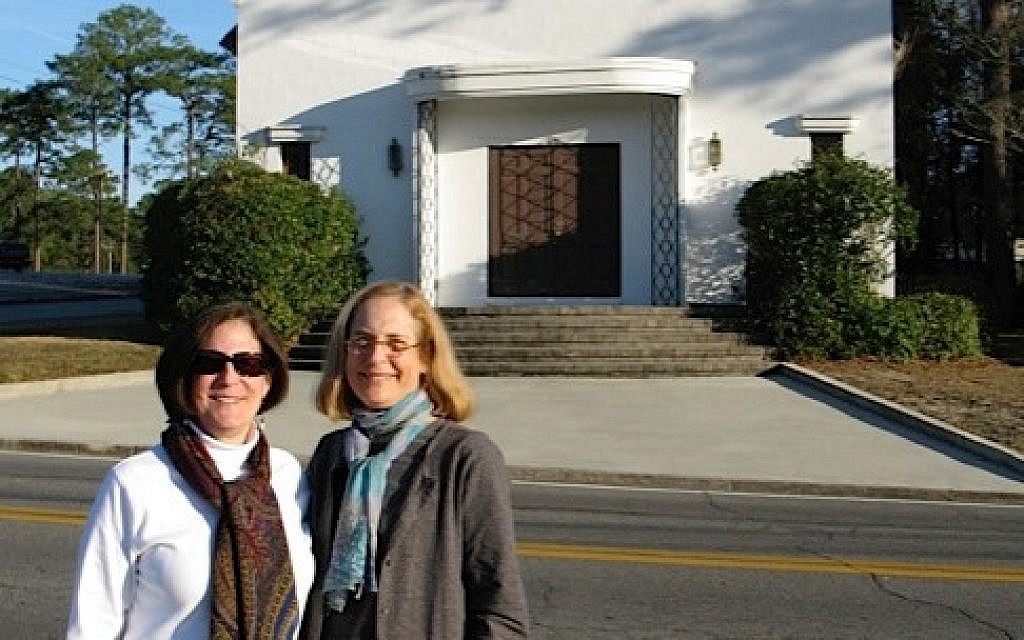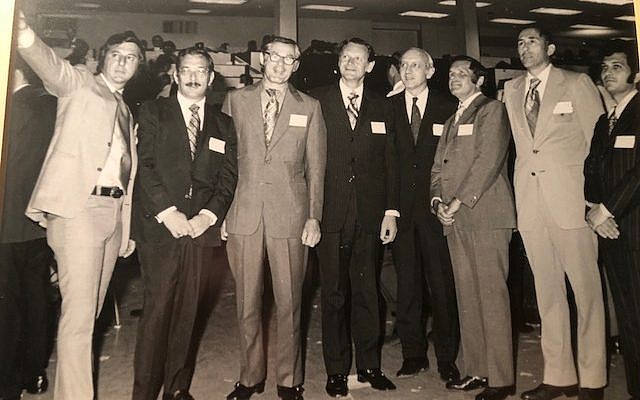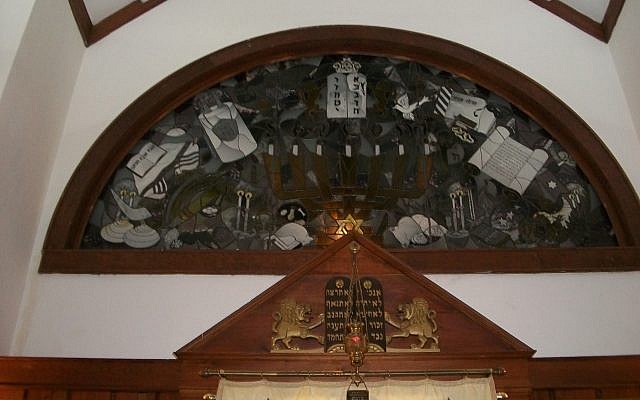Waycross’ Jewish Small-Town Start
Waycross-area natives still support the Waycross Hebrew Center even though they’ve moved to Atlanta.

For much of the 20th century, Jewish life in the Waycross, Ga., area – including Blackshear, Alma and Baxley – revolved around family and the Waycross Hebrew Center. The Conservative synagogue was built in 1952. Few Atlantans originally from those small towns still have relatives in the area, but Waycross Hebrew Center continues to connect them to each other and their vivid memories of growing up Jewish in small, rural Georgia towns.
Al Jacobson’s father came to Waycross in 1924, the same year a synagogue was opened in a rented hall. By the 1940s, there were 48 Jewish families involved with the synagogue. However, by the time Waycross Hebrew Center was opened, there were probably only 20 Jewish families left, Jacobson recalls. Although that number has fluctuated – there were 24 families in 1968 – today, he notes, there is “one Jewish lady in Waycross, one in Alma and only my wife and I in Blackshear, not counting those in nursing homes who don’t know what’s going on.” Friday night services usually draw six or seven Jews, with maybe a similar number of non-Jews who also attend “just because they enjoy it.”
Those numbers, however, don’t reflect the support Waycross Hebrew Center still garners from former congregants. “We have people who send in annual dues from all over the country, from Arizona, New York and Florida. One person moved away 80 years ago,” says Jacobson. Among those dues payers is Jacobson’s nephew, Lonnie Cooper, chairman of Cooper Holdings, Inc. in Atlanta. “I still send them a nice-sized check every year,” he says. Since the synagogue was paid for years ago, the dues cover the upkeep.
Get The AJT Newsletter by email and never miss our top stories Free Sign Up
Cooper, who was born in Waycross in 1954, recalls sitting next to his grandfather at services every Friday night. “People at the synagogue were committed to it. Everyone felt like family,” he says. “We had an obligation to be there for minyan. It forged such a purpose for us.”
He recalls growing up “surrounded by strong family leadership. We were well grounded, very closely knit. Every Sunday night we ate as a family – uncles, aunts, cousins and the greatest grandparents in the world.” His grandfather owned one of the many Jewish-owned retail stores in downtown Waycross.
Cooper’s mother created the magnificent three-paneled stained-glass windows for Waycross Hebrew Center, depicting “all the traditional symbols,” he says proudly.
Sandy Springs resident Felicia Berne was born in Baxley in 1964, about 45 minutes from Waycross, also surrounded by family. Her mother’s sister and brother both brought up their families in the same neighborhood, she recalls fondly. “Now there’s one cousin and her daughter left, although I still stay in touch with Al Jacobson.”

Although her mother’s parents owned a retail store, Finkelstein’s, her father was in the insurance business. Like many men, he took his turn as president of Waycross Hebrew Center. “I remember him bleaching the steps before the High Holidays to make it as attractive as possible,” she says.
Waycross Hebrew Center is a one-story, little white building, says Paula Schwartz, who was born in the city but now lives in East Cobb. “Everyone was very close. We had a minyan every Friday night. If we needed someone for a minyan, they’d call my father, who owned Kenwin Shops – once traded on the American Stock Exchange – and he’d go over there. I remember standing up on the bimah doing a little production of Chanukah songs,” she reminisces.
But Schwartz’s memories of Waycross stopped suddenly when she was 14. Her parents decided to move the family to Atlanta so that Schwartz and her younger sister could grow up among more Jews. “We were distraught. Growing up in Waycross was wonderful.” The trauma of the move was lessened, however, because she had attended Camp Blue Star in North Carolina and discovered several camp friends who lived in Atlanta.
Not everyone with ties to Waycross actually grew up there. Rich Luskin, now in Lilburn, moved to Waycross in 1996 “for a business and religious reason,” he says.

At the time Luskin, an accountant, lived in Selma, Ala., and went to Waycross to interview for a job as a chief financial officer. “I went to services Friday night and the experience decided for me. I felt like I was home. I felt comfortable. The people were great. I met Al (Jacobson) that night. I took the job and lived there about 14 years.”
He may no longer live in Waycross, but Waycross still lives in him. Indeed, Jacobson says, “We call Rich Luskin if we need someone to do a funeral or bar mitzvah.”
“I’m the rabbi with a small ‘r’,” Luskin says, laughing. As a young man, Luskin says he never received the calling to become a rabbi even though he’d conducted services even prior to becoming a bar mitzvah. He says his voracious studying and experience gave him the opportunity to lead services and become a part of Waycross Hebrew Center. “Now I think I should have done this for a living.”
Asked how often he returns to Waycross, he jokes, “I still have a key, so you never know when I’ll show up.”
According to Jacobson, Waycross was more liberal than most small towns in South Georgia. Jews were well-accepted. When his father died in 1970, “every store in town closed for the funeral.” Back then, Jewish-owned stores closed for Rosh Hashanah and Yom Kippur and “the other stores never advertised sales during the holidays out of respect.”
Once a year, the Morris Jacobson Brotherhood Award is given to a member of the community in memory of his father. “It makes the front page of the local newspaper,” Jacobson notes. “A few years ago, a 104-year-old black man won the award for doing so much for the community.”
Jacobson, who lives nine miles from Waycross Hebrew Center – “I’m the closest one” – still fills the roles of secretary and treasurer of the synagogue, which remains Conservative and retains a kosher kitchen. He continues a 67-year tradition of sending out a quarterly newsletter keeping former congregants, as far away as Israel, informed, and obviously, connected to their memories.
This is the third in a series of articles about Jewish life in small towns, sponsored by Atlanta-based Jewish Community Legacy Project. Watch for the next story about Atlanta Jews who grew up in small Georgia towns.



comments